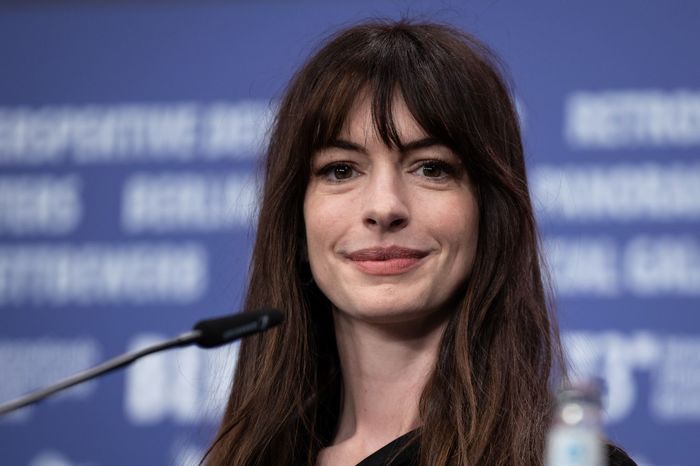No, three-hour films are not too long
Summer is the best time to savour lengthy movies, argues Gemini McKee

In the academic flurry of term, time for enjoying films is at a premium. Now, the summer unfolds three deadline-free months, offering an opportunity to spend time generously. From new releases to familiar classics, the options provided by cinemas, streaming services and long-ignored DVDs mean that even the rainiest afternoon needn’t be a waste of time. Summer’s gift is the luxury of resetting our attention spans – rather than being delivered over a week of laptop dinners or eating into sleep, films can take up sofa-lounging summer evenings and afternoons. Three hours have never passed so quickly.
“Even the rainiest afternoon needn’t be a waste of time”
Having missed the cinematic release of The Batman during A-Level revision, I’ll admit that any subsequent urgency to watch Robert Pattinson’s turn as the vigilante was overwhelmed by an internet oversaturated with Nirvana’s ‘Something in the Way’. It’s also almost three hours long – a daunting prospect for students like me, accustomed to the guilty pleasure of short-form entertainment (read, an Instagram reels addiction). This summer, I finally got around to it. Director Matt Reeves’ noir take on the franchise opens with the protagonist’s view of a murder, setting a dark tone befitting an adaption filmed and released during the pandemic. Similarly, the disturbed Riddler mustering support from an online community of extremists blurs the lines between comic-book villain and real-world threat. It’s a visually moody film – besides crime, Gotham is defined by shadowy lighting, an ominous score and the looming grey of city blocks and Gothic ceilings. Yet, despite its protracted runtime (20 minutes more than 2008’s The Dark Knight), the unriddling of Gotham’s criminal web is consistently engrossing – much more so than the equivalent of three lectures back-to-back.
At just over 3 hours, Andrei Tarkovsky’s Russian epic Andrei Rublev is so long it must be stored across two DVDs, fated to be watched on Sunday afternoons, on Boxing Day or when off sick. In Anglophone cinema, David Lean’s epics Lawrence of Arabia and Doctor Zhivago offer similar afternoon-engulfing experiences. Perhaps it takes endurance to sit through films so long they were designed to have midway intermissions. However, there is no shortcut to their enormous scope. Andrei Rublev traces the journey of the eponymous medieval icon painter – both spiritually and geographically – from an encounter with a pagan solstice ritual to the Tatar raid of Vladimir.
“Taking the whole evening to curl up with these films is transportation of a purely relaxing kind”
At the film’s centre are spiritual conversations between Andrei and other monks, its pensive pace lingering over his conflict between love of a flawed world and obligation to reject all but the divine. Tarkovsky pauses over important images, like Andrei’s apprentice washing paintbrushes in the river, the swirling pigment in the stream presaging the river-drawn eddies of blood when he is killed by an archer. Patience is one of the film’s thematic concerns but also a virtue of the viewer’s experience, facilitating its quiet, thoughtful depth. There isn’t a better time to traverse generations, decades or whole continents from the comfort of your sofa.
Even the comfort watch, the classic post-studying fixture, gains a new lease of life in summer. Familiar ’00s films, like Pride and Prejudice or a cheeky Harry Potter, are welcome treats after a gruelling library shift. Yet taking the whole evening to curl up with these films is transportation of a purely relaxing kind. The pinnacle of nostalgic viewing, watching the Lord of the Rings trilogy requires some time management (running to 11 hours and 22 minutes in total). Each film is a masterclass in escapism, promising adventure in a profusely detailed fantasy world, brought to life with the help of Oscar-winning costume design, scores and visual effects.
“Growing up with any piece of media elevates its timelessness”
Growing up with any piece of media elevates its timelessness – while all else changes, it remains constant, self-contained. For me, The Lord of the Rings has become well-worn over the last decade, its dialogue echoed with synchronous recitations like a film karaoke. Even if I’m distracted, its autumnal palettes are a reassuring screensaver: dappled forest green, the browns of old maps and wool cloaks, forged metal’s pale gold. Each variation of Howard Shore’s Shire theme soothes like a hot cup of tea. Three months into summer, it would be a crime not to have revisited Peter Jackson’s much-loved adaptations – the extended editions, of course.
When the strict time rationing of exam term feels like a distant memory, to (intentionally) spend three hours screen-bound doesn’t seem too wild of a suggestion. This long break from the structured chaos of termtime offers the best chance to relax – as well as just reset – and the expansive scope of longer films are a timely indulgence. If there is a time for everything, summer is the time for films that linger over the very grand, the very small and the very human.
 News / Colleges charge different rents for the same Castle Street accommodation2 March 2026
News / Colleges charge different rents for the same Castle Street accommodation2 March 2026 News / News in Brief: waterworks, wine woes, and workplace wins 1 March 2026
News / News in Brief: waterworks, wine woes, and workplace wins 1 March 2026 News / Angela Merkel among Cambridge honorary degree nominees27 February 2026
News / Angela Merkel among Cambridge honorary degree nominees27 February 2026 News / Climate activists protest for ‘ethical careers policy’1 March 2026
News / Climate activists protest for ‘ethical careers policy’1 March 2026 News / King’s hosts open iftar for Ramadan3 March 2026
News / King’s hosts open iftar for Ramadan3 March 2026









